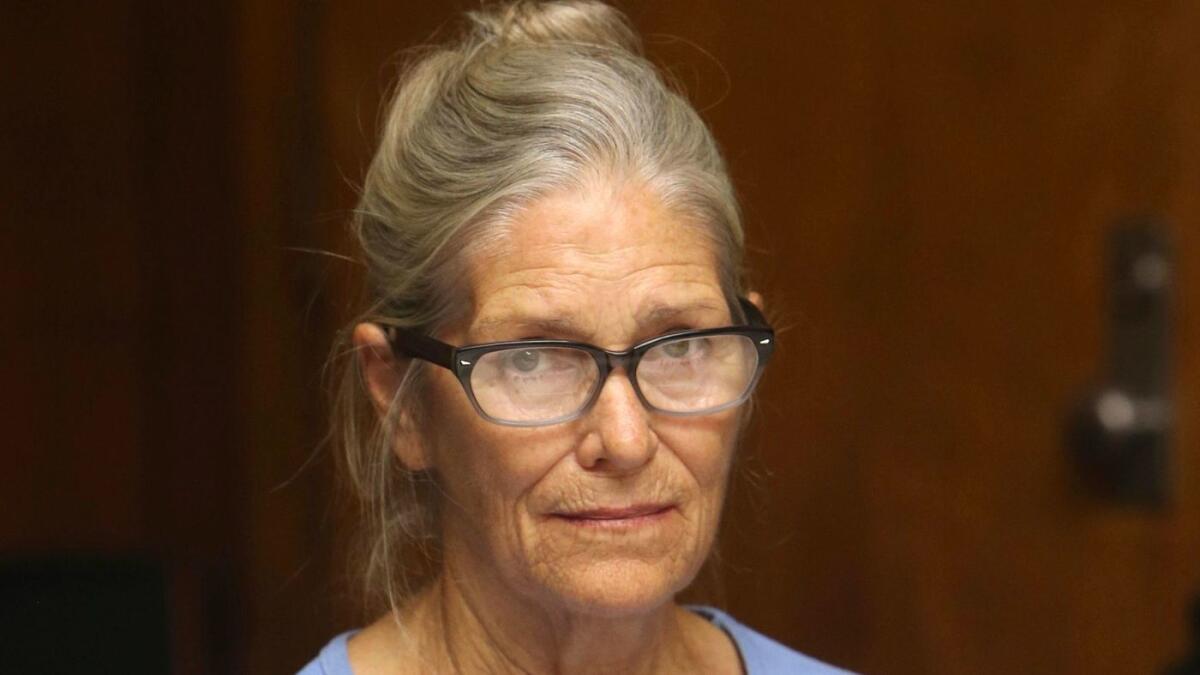Judge denies parole to former Charles Manson follower Leslie Van Houten

A Los Angeles County Superior Court judge on Friday refused to overturn Gov. Jerry Brown’s decision denying parole to former Charles Manson follower and convicted killer Leslie Van Houten.
In his ruling, Judge William C. Ryan said there was “some evidence” to support Brown’s decision in refusing to release Leslie Van Houten, 68, who in 1971 was found guilty of taking part in the brutal killings of Leno and Rosemary LaBianca in Los Angeles.
If released, Ryan found that Van Houten “would pose an unreasonable risk of danger to society.”
Ryan said the brutal and terrorizing manner in which Van Houten and her accomplices killed the LaBiancas demonstrates how the crime was more heinous than most and stands apart from others.
In January 2018, Brown reversed a parole board’s decision to free Van Houten, who was 19 years old at the time of the slayings. Her attorney then filed a writ of habeas corpus seeking to overturn Brown’s decision.
The parole board recommended Van Houten be released because of her age, remorse and her commitment to getting an education while in prison, according to court records.
Despite her good conduct in prison and attempts to mentor other inmates, Brown said in January that “the aggravated nature of the crime alone can provide a valid basis for denying parole, even when there is strong evidence of rehabilitation and no other evidence of current dangerousness.”
In his ruling issued Friday, Ryan said the governor is authorized to make a decision on whether someone is suitable for parole or not.
“Unless the inmate can demonstrate that there is no evidence to support the governor’s conclusion that the inmate is a current danger to public safety, the petition fails to state a prima facie case for relief and may be summarily denied,” Ryan said.
On Aug. 10, 1969, Van Houten and her accomplices stormed into the LaBianca home in Los Feliz. As Charles “Tex” Watson stabbed Leno LaBianca, Van Houten and another woman held down Rosemary LaBianca.
After Watson stabbed Rosemary LaBianca with a bayonet, he handed a knife to Van Houten. She testified to stabbing her in the back at least 14 more times. The blood of the victims was used to scrawl messages on the walls.
Twitter: @melissaetehad
More to Read
Sign up for Essential California
The most important California stories and recommendations in your inbox every morning.
You may occasionally receive promotional content from the Los Angeles Times.











